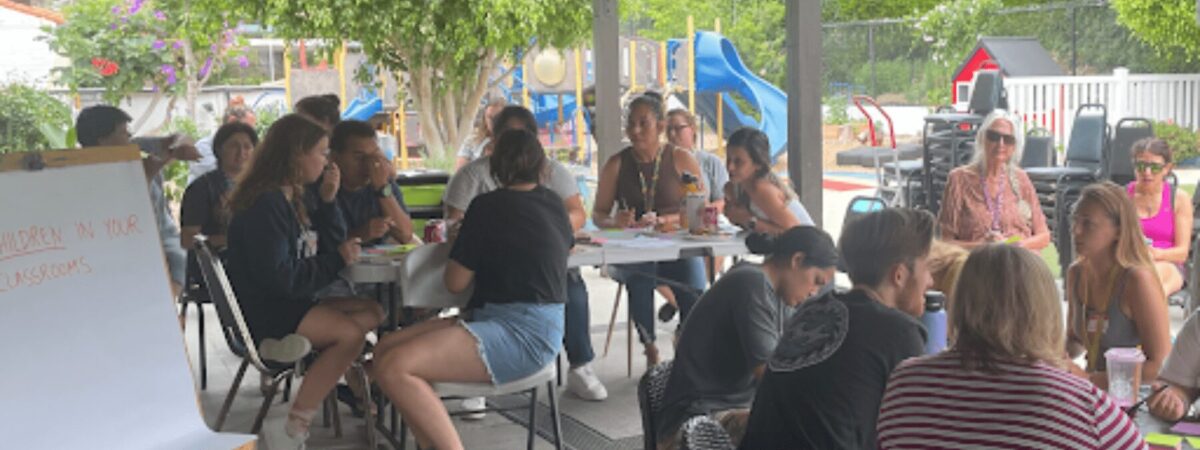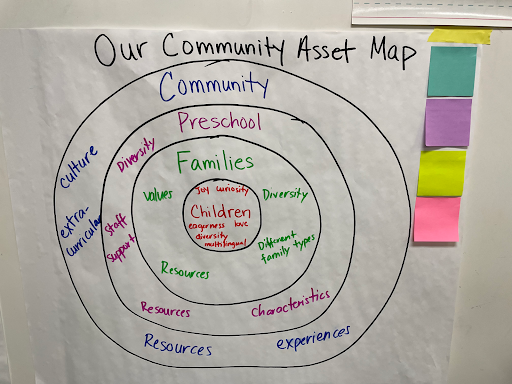
Last summer, we kicked off a six-month planning phase to explore how to integrate STEM meaningfully and feasibly into the YMCA’s preschool environment. Our approach involved engaging our teams in a series of virtual and in person activities aimed at:
In the spirit of the collective ownership tenet of the Inclusive Innovation process, we started with a virtual kickoff meeting with YMCA program leaders to engage in icebreaker activities designed with relationship building in mind. Through these activities, we learned about one another and our respective organizations and committed to embracing our collective leadership of the project. We also developed a shared understanding and vision to guide our work ahead.
With our shared vision now established, YMCA leadership and the Digital Promise team then collaboratively created and administered a brief online survey to capture preschool educators’ insights on their classrooms and current teaching practices. We then used the survey findings to inform our in-person listening sessions with each preschool site. The listening sessions were structured around interactive activities to continue relationship-building efforts—this time with the educators—and deepen our collective understanding of each preschool site’s strengths, areas for growth, and community context. For instance, we generated a community asset map as an artifact of our listening session work together.

A community asset map artifact developed during a listening session
To help situate the survey and listening session findings, a subset of teachers participated in virtual focus groups where we reviewed and made sense of the findings together as they related to their specific preschool site.
“We are very excited for this opportunity to explore STEM innovation at our program,” said Jennifer Hardy, association program specialist of child and youth development at the YMCA of San Diego County. “Having the space to think collaboratively with our team as well Digital Promise allows us to get really creative in our thinking of how we best support our children and families.”
Through the planning phase activities, we learned with the YMCA leaders and educators that:
YMCA leaders’ and educators’ insights directly shaped the focus of our current efforts to co-design outdoor STEM learning spaces and professional learning resources for educators to integrate science in their classrooms—a key example illustrating the power and aim of collective ownership.
The Ecke YMCA preschool team shared, “Using the Jamboard and the given prompts really supported us in thinking about how we currently use our space as well as areas we might change to enhance STEM learning.”
As we begin the co-design phase, we will continue to emphasize collective ownership to ensure YMCA preschool educators’ and families’ perspectives and voices are continually reflected and amplified throughout the process and in the resulting STEM innovations.
Sign up for our Learning Sciences Connection newsletter to stay updated on this work.